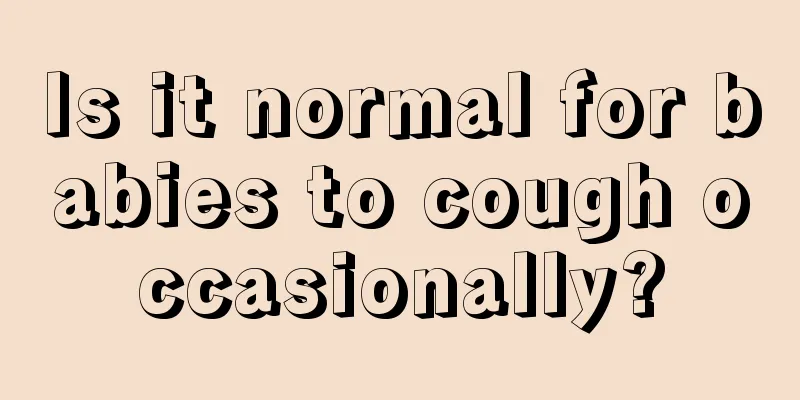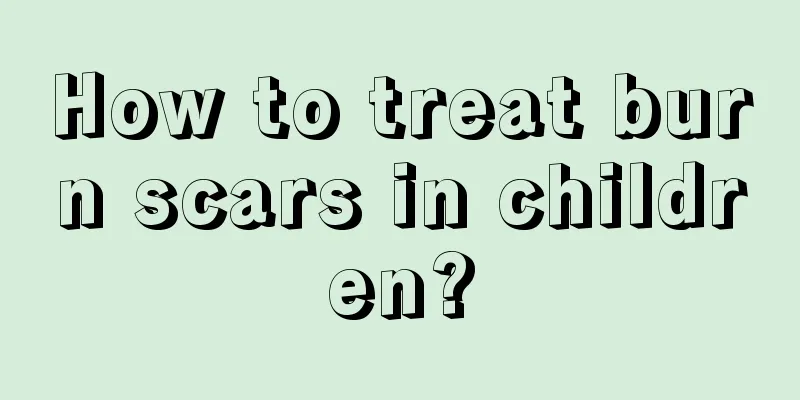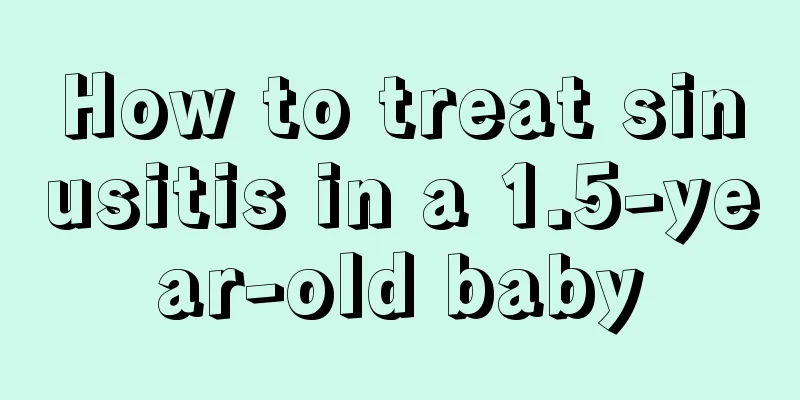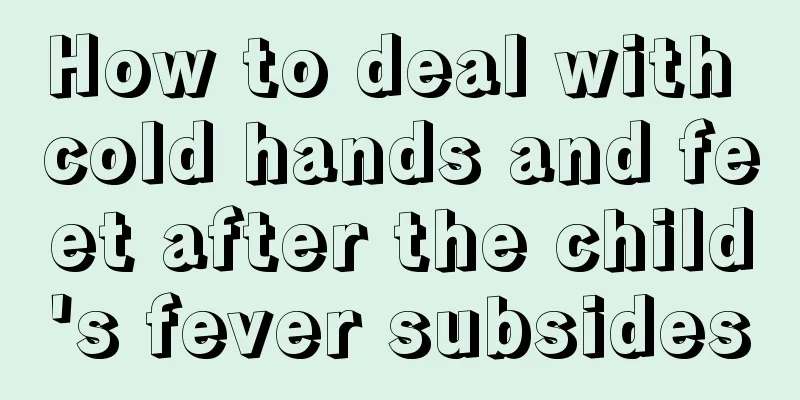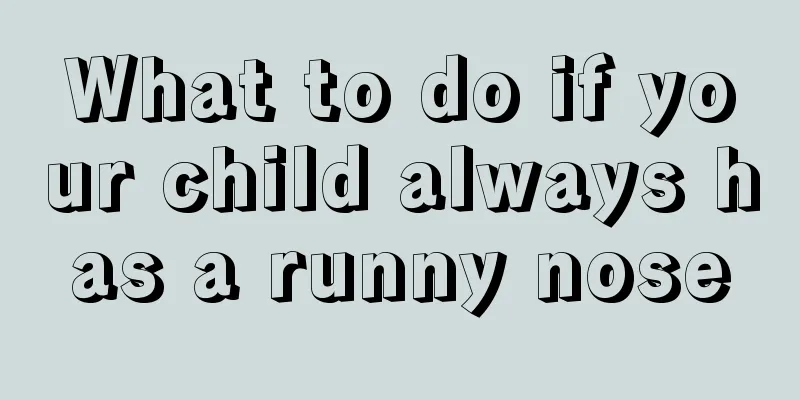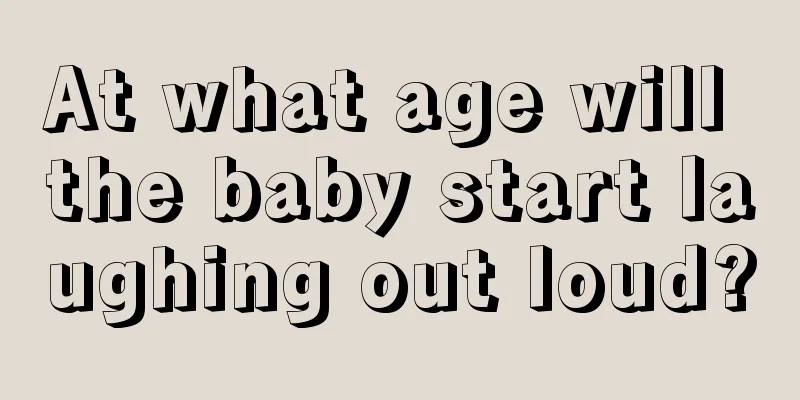2-year-old baby took too much antipyretic medicine
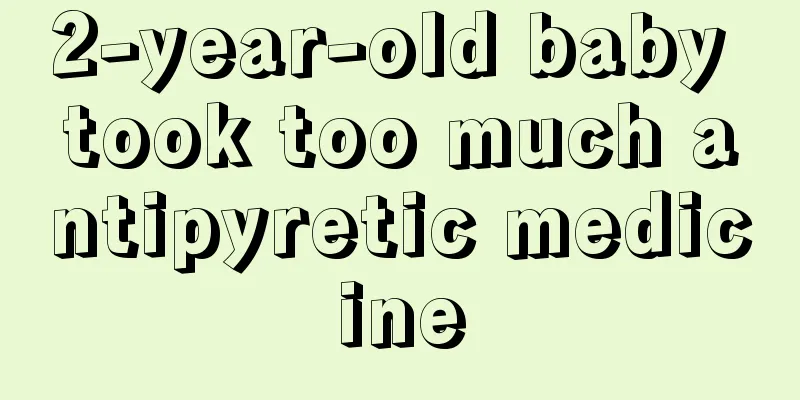
|
Usually when a baby has a cold, parents will prepare a lot of medicine, but put the medicine in a place where it can be easily seen and the baby will grab it. Some children will eat it as candy. After taking the antipyretic medicine, some bad complications may occur, such as hallucinations or even poisoning. If you find that your baby has taken too much antipyretic medicine, you must go to the hospital for examination in time. What are antipyretics? It is a type of oral medicine that uses biochemical means to restore the body temperature of children with fever to normal. Generally speaking, if the child's body temperature does not exceed 38.5°C, it is not advisable to take antipyretic drugs, but physical cooling methods such as ice compresses and fever-reducing patches should be used instead. Side effects of antipyretics As the saying goes, "All medicines are poisonous to some extent", chemical drugs generally have the advantage of being effective quickly, but they may also have different side effects. From the above analysis of 6 kinds of children's antipyretic drugs, we can understand the side effects caused by different antipyretic drug ingredients. In comparison, acetaminophen and ibuprofen have the least side effects. The side effect of common children's antipyretic drugs is generally irritation to the gastrointestinal tract, but the side effects of drugs such as acetaminophen and aminopyrine are more obvious, which may cause collapse or even shock. Children with allergic constitutions will develop drug rashes and urticaria, which can endanger the lives of children. These categories of drugs are also being phased out. What are the antipyretics? Ibuprofen Product name: Meilin, Tianqian, Chengong Zaixin, etc. Usage: It can be used to reduce fever in infants and young children, and relieve mild headaches, sore throats and toothaches caused by colds and flu. 5-10 mg/kg per dose based on body weight. Repeat every 6-8 hours if needed, but not more than 4 times per 24 hours. Advantages: It and acetaminophen are two antipyretic drugs recommended by the World Health Organization (WHO) and are also relatively safe antipyretic drugs. Its advantage is that it can reduce fever smoothly and for a long time, and the average fever-reducing time is about 6 hours, and up to 8 hours. Moreover, it is more effective than acetaminophen in reducing fever above 39°C. Disadvantages: Mild gastrointestinal discomfort, occasional rash and tinnitus, headache, effects on coagulation function and elevated transferase, etc. There are also reports of gastrointestinal bleeding and aggravation of ulcers. There are also reports that it occasionally causes reversible renal damage in states of dehydration, hypovolemia, and low cardiac output, and overdose may cause side effects such as central nervous system depression and epileptic seizures. Therefore, it is generally used for children with high fever over 3 years old. |
<<: Can a baby's fever be reduced by bathing?
>>: Children's urine routine examination shows occult blood
Recommend
What should I do if my baby chokes when drinking water?
Many parents report that their babies choke when ...
An 8-year-old girl has a lump on one breast
Girls' breasts develop very quickly, starting...
Baby's eyes are red_Children's eyes are red
The redness of the baby's eyes may be caused ...
How to give injections to children who are afraid of injections
No one in life likes to get injections, let alone...
Clinical manifestations and etiology of neonatal toxic erythema
To everyone, erythema toxicum neonatorum. What is...
What causes fever and convulsions in children?
It is quite common for children to have fever in ...
What are the symptoms of calcium deficiency in children? It might be like this!
Many parents are very afraid that their children ...
Can girls grow taller after puberty?
Children nowadays are very tall because the livin...
The harm of children's tooth fillings killing tooth nerves
We have all experienced toothache. Some people sa...
There is a white spot on the child's face
Because children have poor resistance and low imm...
Two-year-old baby has discharge
Children do not have so many gynecological proble...
Is it normal for a baby to start teething at 4 months old?
We know that babies usually grow teeth at 6 month...
What to do if your baby is excited and can't sleep at night
Nowadays, children are delivered in hospitals. Ve...
What is the reason for the rash on the baby's face
We all know that the baby's skin is relativel...
Dangers of using antibiotics in newborns
We all know that many children may have some dise...
